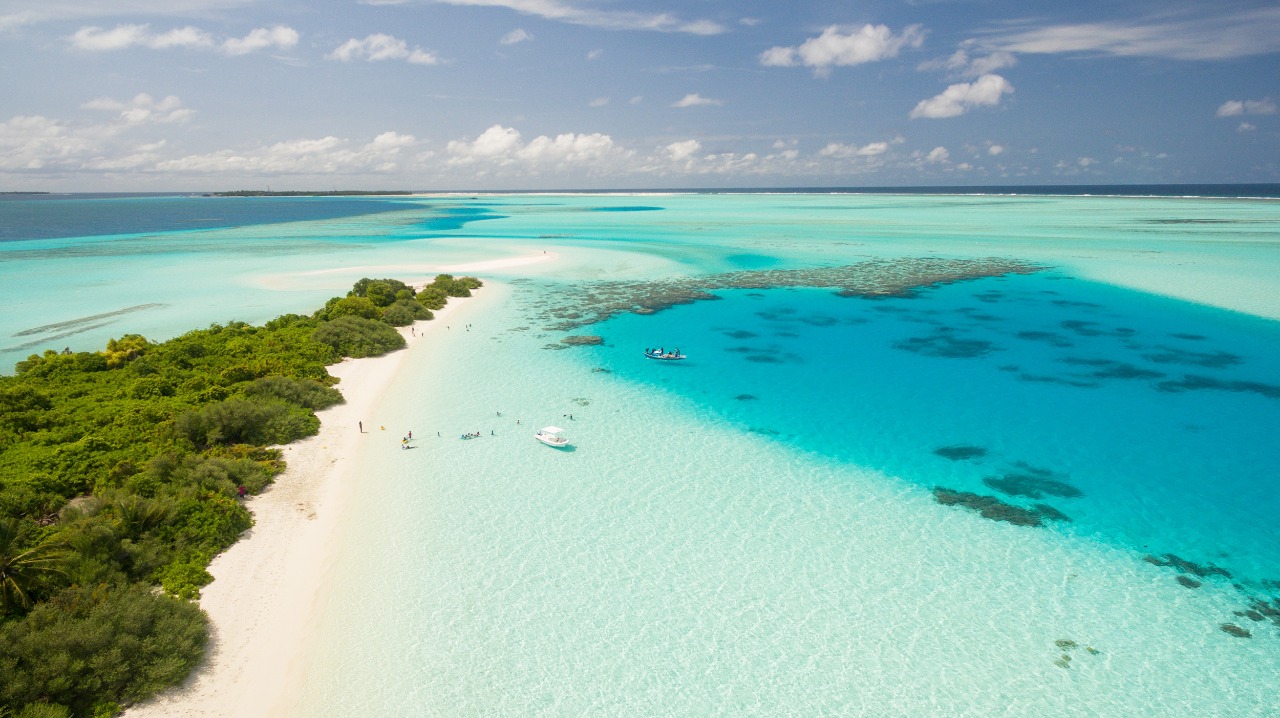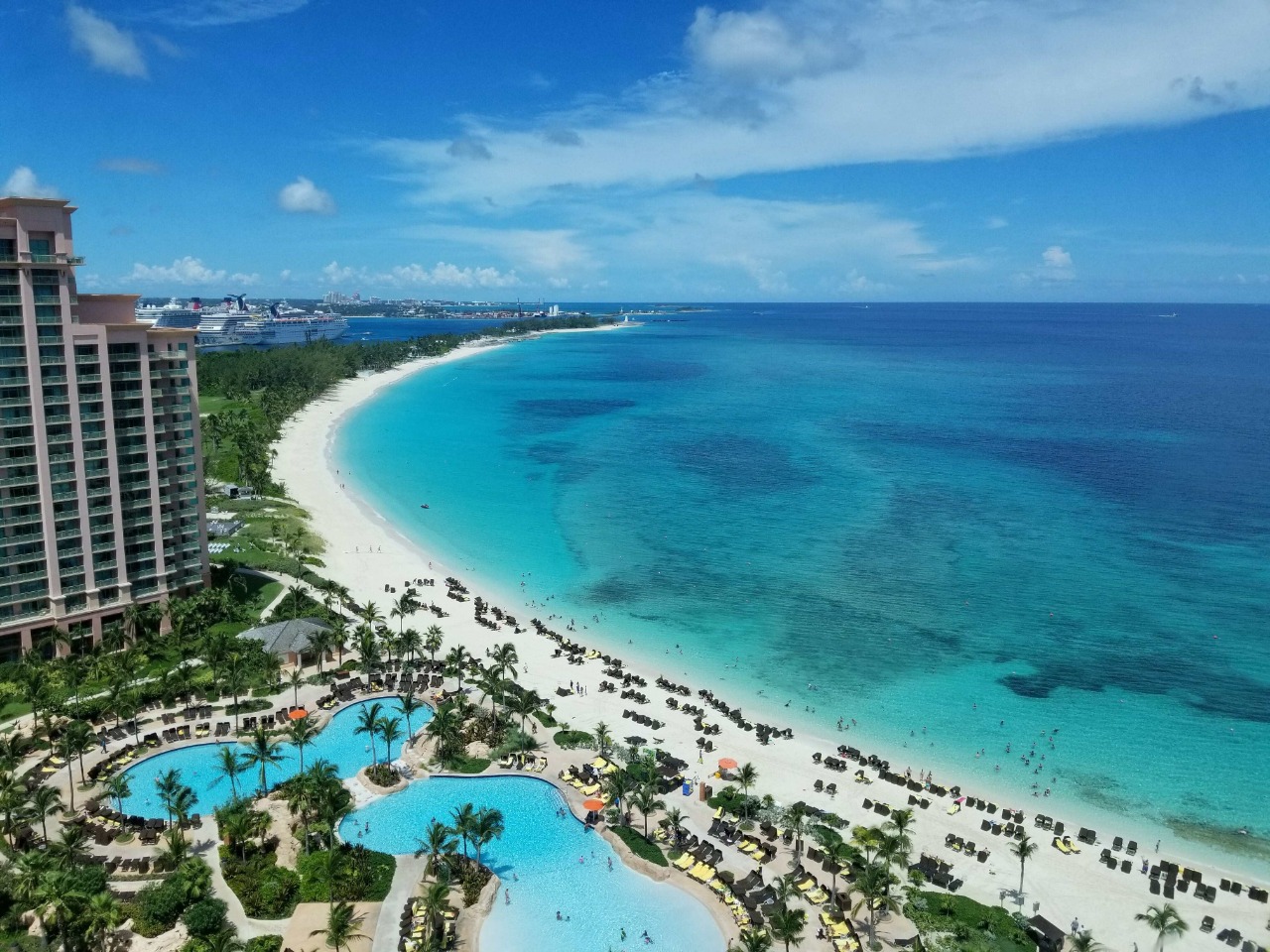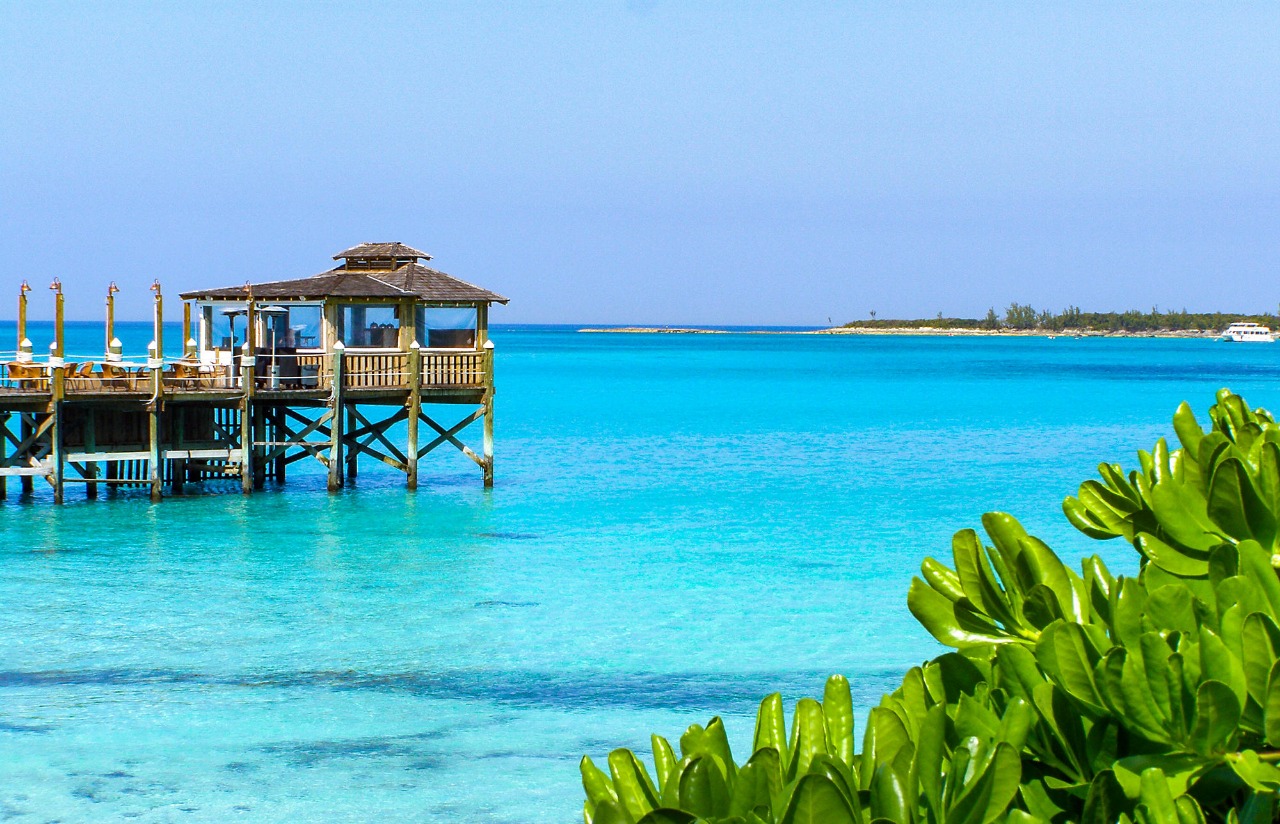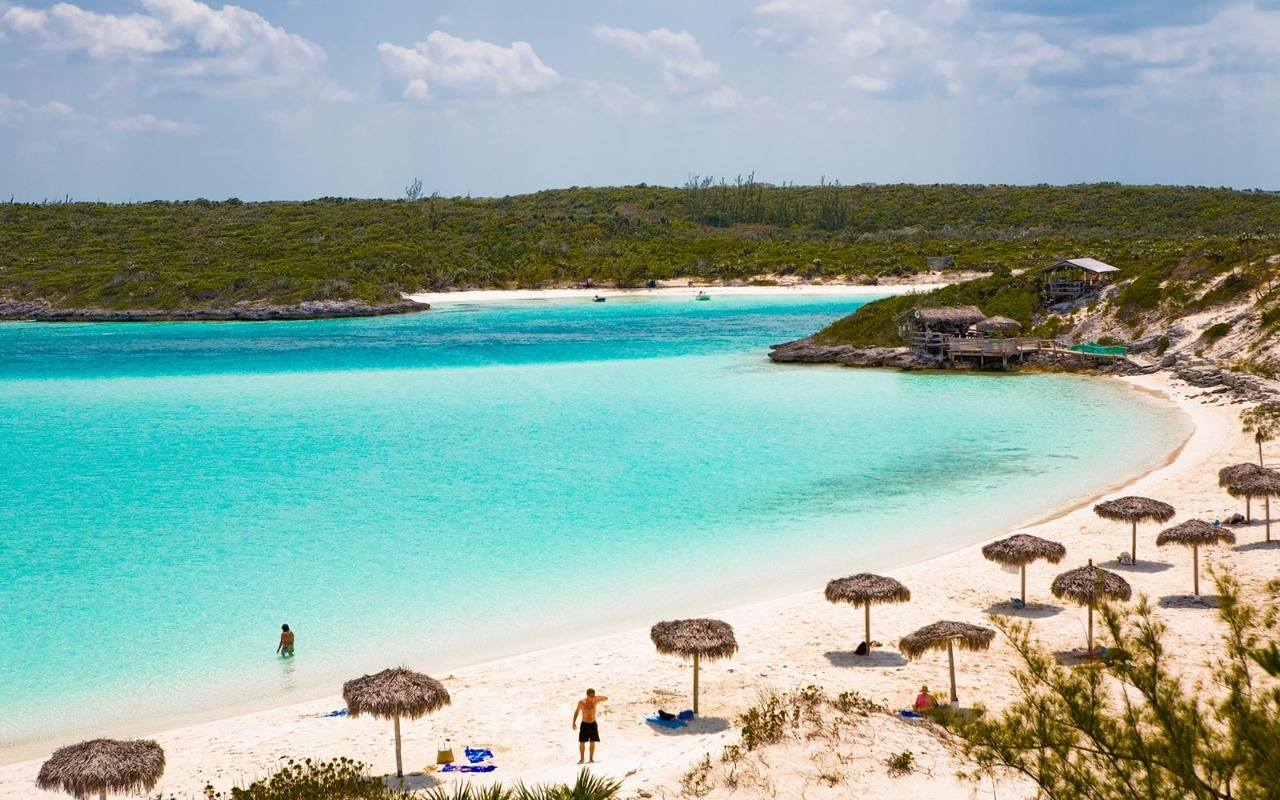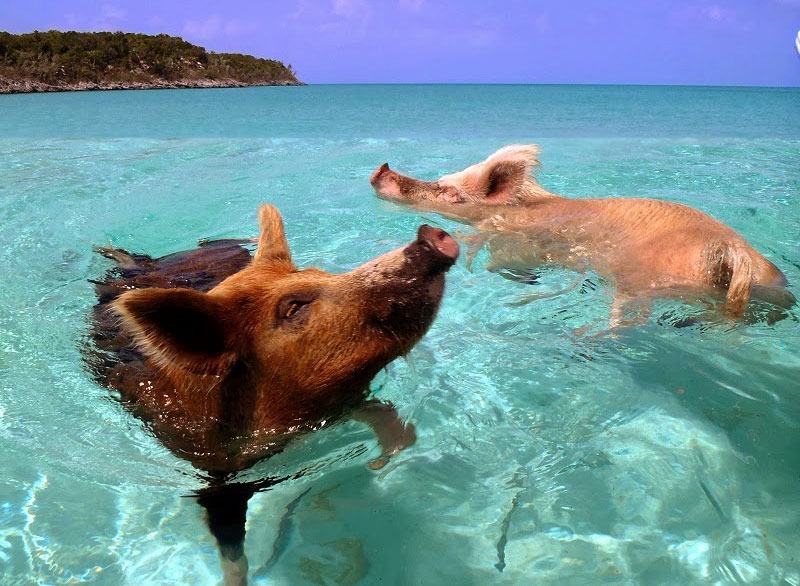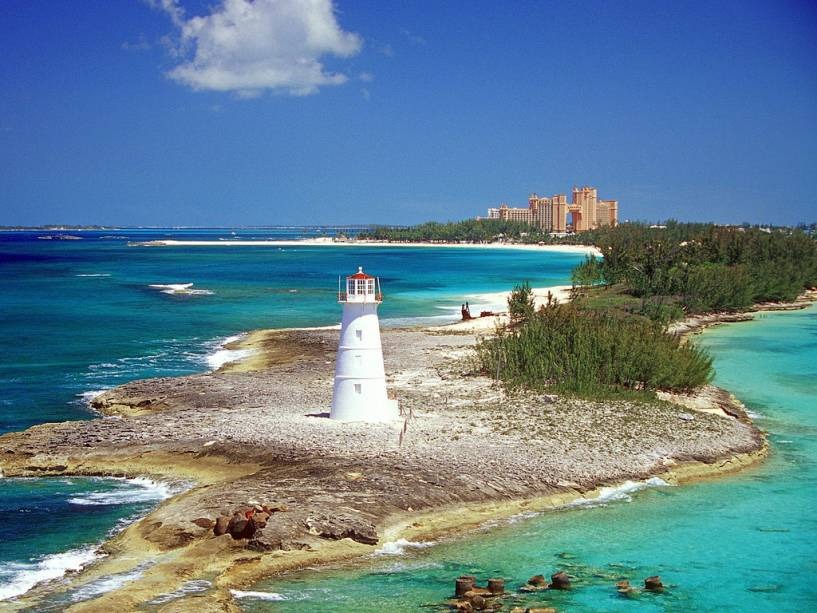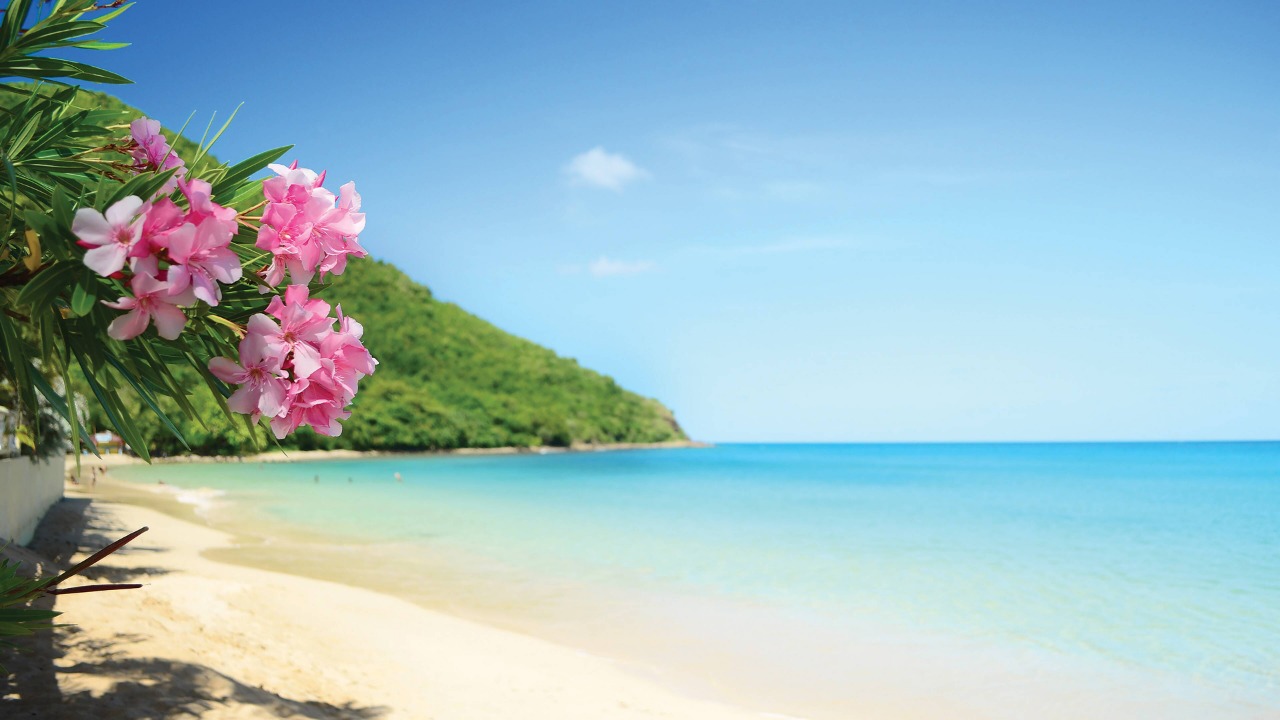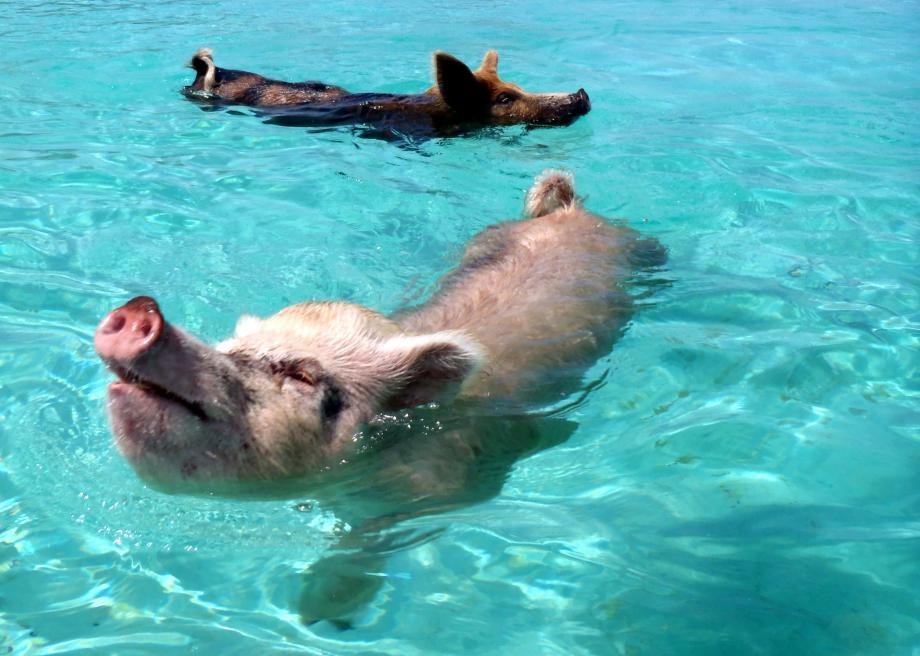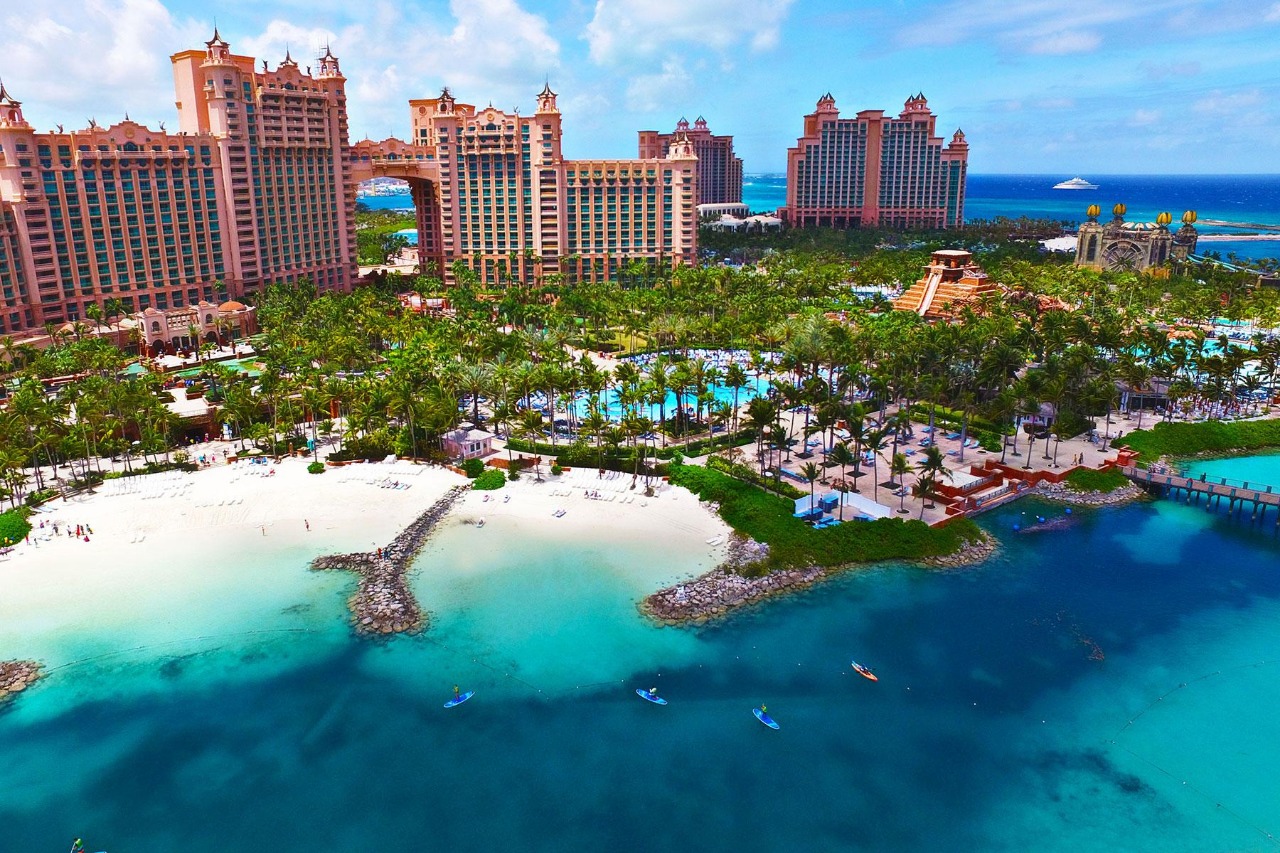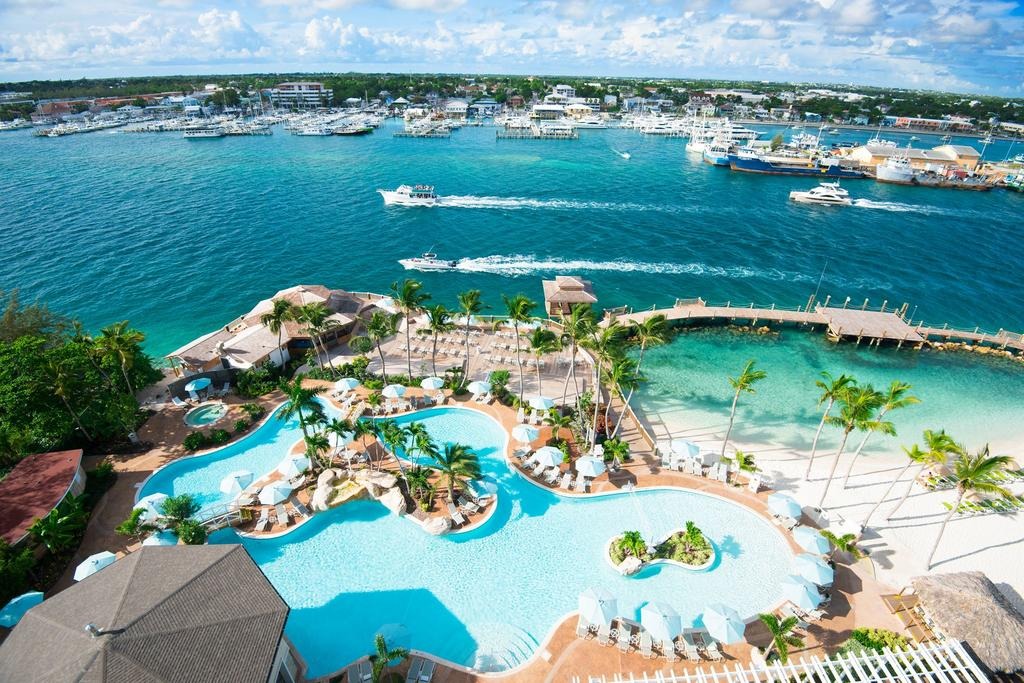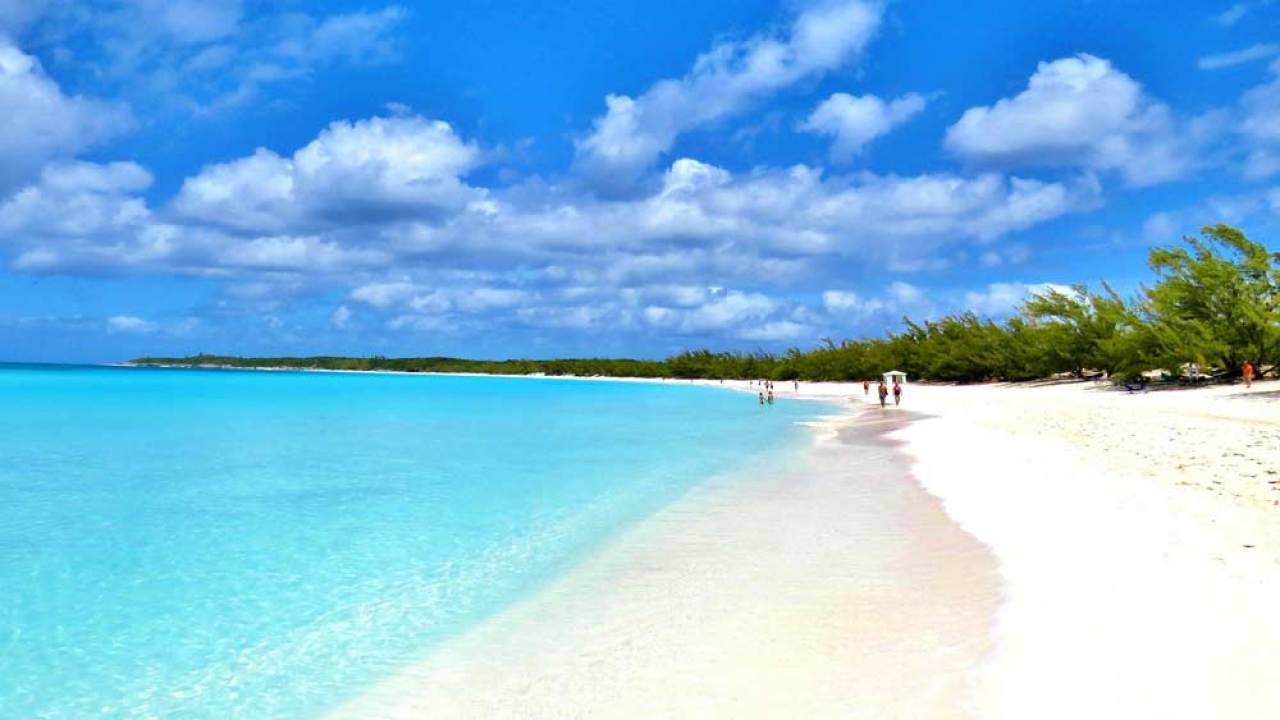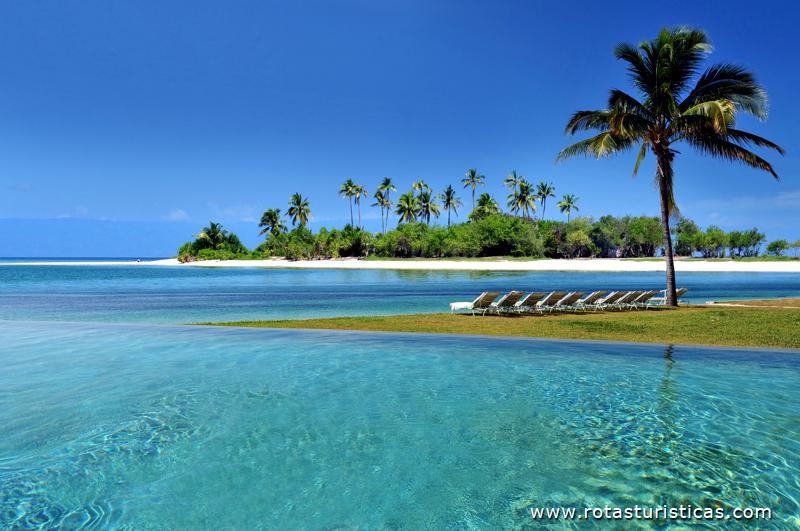Pictures of: Bahamas
Location map
Airports
Hotels and other Accommodation
Golf Courses
What to visit
Consulates & Embassies
World Nomads
The Travel Insurance with the largest coverage

The Travel Insurance with the largest coverage

Bahamas
The Bahamas, or Bahamas, officially the Commonwealth of the Bahamas, is an island nation made up of more than 100 islands, islands and islets in the Atlantic Ocean, north of Cuba and the Spanish island (Haiti and Dominican Republic), northwest of the British Overseas Territories. the Turks and Caicos Islands and the southwest part of the US state of Florida. Its capital is Nassau on the island of New Providence. Geographically, the Bahamas are located in the same archipelago as Cuba, Spanish and Turks and Caicos.
The national population, which is approximately 345,700 inhabitants, is distributed in only 30 of the many islands of the Bahamas. These inhabitants face some social problems, especially the violence caused by drug trafficking. However, the country has good indicators, such as low rates of illiteracy and infant mortality (only 8 deaths per thousand live births), as well as good environmental sanitation services.
Originally inhabited by the Lucaians, a branch of the Taínos, speakers of the Aruaque, the Bahamas were the site of the first landing of Christopher Columbus in the New World in 1492. Although the Spaniards never colonized the islands, they transported the Lucaians as slaves to the Spanish island . The islands remained almost uninhabited between 1513 and 1648, when British settlers from Bermuda settled on the island of Eleuthera.
The Bahamas became a colony of the crown in 1718, when the British tightened the siege to piracy. After the American War of Independence, thousands of loyalists (British monarchy supporters) and African slaves moved to the Bahamas and established a plantation-based economy. The slave trade was abolished in the British Empire in 1807 and many Africans freed from slave ships by the Royal Navy were placed in the Bahamas during the nineteenth century. Slavery itself was abolished in 1834. The descendants of these slaves constitute the majority of the current Bahian population.
The beautiful natural landscapes of the islands of the Bahamas, combined with the hot climate, attract millions of tourists to the country, making this activity the main source of financial resources. Other important sources of income are agriculture (sugar cane, cotton, sisal, fruits, etc.), cement production and the fishing industry.
The national population, which is approximately 345,700 inhabitants, is distributed in only 30 of the many islands of the Bahamas. These inhabitants face some social problems, especially the violence caused by drug trafficking. However, the country has good indicators, such as low rates of illiteracy and infant mortality (only 8 deaths per thousand live births), as well as good environmental sanitation services.
Originally inhabited by the Lucaians, a branch of the Taínos, speakers of the Aruaque, the Bahamas were the site of the first landing of Christopher Columbus in the New World in 1492. Although the Spaniards never colonized the islands, they transported the Lucaians as slaves to the Spanish island . The islands remained almost uninhabited between 1513 and 1648, when British settlers from Bermuda settled on the island of Eleuthera.
The Bahamas became a colony of the crown in 1718, when the British tightened the siege to piracy. After the American War of Independence, thousands of loyalists (British monarchy supporters) and African slaves moved to the Bahamas and established a plantation-based economy. The slave trade was abolished in the British Empire in 1807 and many Africans freed from slave ships by the Royal Navy were placed in the Bahamas during the nineteenth century. Slavery itself was abolished in 1834. The descendants of these slaves constitute the majority of the current Bahian population.
The beautiful natural landscapes of the islands of the Bahamas, combined with the hot climate, attract millions of tourists to the country, making this activity the main source of financial resources. Other important sources of income are agriculture (sugar cane, cotton, sisal, fruits, etc.), cement production and the fishing industry.
Tourism
The Bahamas provide healthy tourism, especially for visitors who come to land from cruise ships, or by plane for a tropical vacation. People from the region combined with African and British roots show them the hospitality of the Bahamas which attracts tourists from all over the world year after year. These 700 islands offer several advantages for tourists regardless of the type of vacation.
The islands of the Bahamas can boast of having the clearest oceanic waters and the third largest coral reef in the world. The Bahamas are ideal for marine activities, including scuba diving, fishing and swimming. With so many islands to explore, the water enthusiast can visit this archipelago more than 1,000 times and never see the same underwater view twice.
If the beautiful waters of the Bahamas attract tourists to a marine adventure, the land offers something for everyone. In larger urban areas like Grand Bahama and Nassau, tourists can enjoy entertainment that includes nightclubs, resorts, spas and casinos. For outdoor adventures, there are caves, farms, forts, villages and remote outdoor biodiversity, including a rare species of flowers and the Bahamian parrot in distress.
The islands of the Bahamas can boast of having the clearest oceanic waters and the third largest coral reef in the world. The Bahamas are ideal for marine activities, including scuba diving, fishing and swimming. With so many islands to explore, the water enthusiast can visit this archipelago more than 1,000 times and never see the same underwater view twice.
If the beautiful waters of the Bahamas attract tourists to a marine adventure, the land offers something for everyone. In larger urban areas like Grand Bahama and Nassau, tourists can enjoy entertainment that includes nightclubs, resorts, spas and casinos. For outdoor adventures, there are caves, farms, forts, villages and remote outdoor biodiversity, including a rare species of flowers and the Bahamian parrot in distress.
Weather
Year-round temperate climate in the Bahamas thanks to the ever-blowing trade winds (a high of 32 ° C in summer and a low of 16 ° C in winter). The climate is very sunny: 320 days of sunshine per year. The rainy season lasts from May to November in the Bahamas, with heavy rainfall, usually nocturnal and short-lived.
Gastronomy
In the Bahamas, due to the great development of tourism, they find quality, very luxurious restaurants such as modest bars, where you can find snail burgers, served with a mixture of onions and cereals. Snails are used as standard, the kitchen star in the Bahamas.
The most consumed fish in the Bahamas are marlin, tuna, grouper, sargo, among many others accompanied with abundant salads, fruit juices and fruit desserts.
The Conch (pronounced konk) is typically fried, cooked, in salads or roast dishes, grilled lobster or salad, grilled crab, grilled fish with cereals, fish stew with rice and beans. The beef Souse in brine, is another popular dish.
Another popular food is lobster, one of many species of lobsters that are caught in the waters of the archipelago, which is usually eaten cooked or as an ingredient in several dishes or salads.
Steamed crab is another delight of the country.
In addition to seafood, fresh fish dishes are the best that Bahamian cuisine has, and among them one of the most popular is the fish 'n'grits, which is fresh cooked fish accompanied by a corn dough .
Those who love fish should not fail to savor another of their specialties, the fish stew, which is nothing more than fresh fish cooked with parsley, tomato, onion and various spices.
Whether meat or fish dishes, most are accompanied with vegetables or peas, spices, tomatoes and onions accompanying typical Caribbean.
To taste and taste the aroma of soups, nothing like experiencing a tasty soup of peas, beans and vegetables, which is nothing more than a cream of peas or vegetables, very tasty.
USE (pronounced sowse) is a very unique soup in the Bahamas and throughout the Caribbean.
Its ingredients besides water are meat, lemon juice, onion, peppers and celery. The meat used is usually chicken, beef bone, pork legs or lamb's neck, whose ingredients give it a rich, and very particular flavor, which most travelers wish to repeat.
The islands have a wide variety of fruits: banana, papaya, pineapple and mango, plus soursops, sapodillas and jelly beans.
Desserts include, guava pudding, sweet pineapple, sour cream soup or coconut cake.
Worth noting is the beer called Kalik, and among the typical drinks, coconut water and gin mixed with milk, is one of the preferred drinks and Switcher, made with native lemons.
Local people, to mitigate the sweltering heat, drink coconut water mixed with a few drops of sweetened milk and gin, or the refreshing drink called the Switcher, made with lemons.
The most consumed fish in the Bahamas are marlin, tuna, grouper, sargo, among many others accompanied with abundant salads, fruit juices and fruit desserts.
The Conch (pronounced konk) is typically fried, cooked, in salads or roast dishes, grilled lobster or salad, grilled crab, grilled fish with cereals, fish stew with rice and beans. The beef Souse in brine, is another popular dish.
Another popular food is lobster, one of many species of lobsters that are caught in the waters of the archipelago, which is usually eaten cooked or as an ingredient in several dishes or salads.
Steamed crab is another delight of the country.
In addition to seafood, fresh fish dishes are the best that Bahamian cuisine has, and among them one of the most popular is the fish 'n'grits, which is fresh cooked fish accompanied by a corn dough .
Those who love fish should not fail to savor another of their specialties, the fish stew, which is nothing more than fresh fish cooked with parsley, tomato, onion and various spices.
Whether meat or fish dishes, most are accompanied with vegetables or peas, spices, tomatoes and onions accompanying typical Caribbean.
To taste and taste the aroma of soups, nothing like experiencing a tasty soup of peas, beans and vegetables, which is nothing more than a cream of peas or vegetables, very tasty.
USE (pronounced sowse) is a very unique soup in the Bahamas and throughout the Caribbean.
Its ingredients besides water are meat, lemon juice, onion, peppers and celery. The meat used is usually chicken, beef bone, pork legs or lamb's neck, whose ingredients give it a rich, and very particular flavor, which most travelers wish to repeat.
The islands have a wide variety of fruits: banana, papaya, pineapple and mango, plus soursops, sapodillas and jelly beans.
Desserts include, guava pudding, sweet pineapple, sour cream soup or coconut cake.
Worth noting is the beer called Kalik, and among the typical drinks, coconut water and gin mixed with milk, is one of the preferred drinks and Switcher, made with native lemons.
Local people, to mitigate the sweltering heat, drink coconut water mixed with a few drops of sweetened milk and gin, or the refreshing drink called the Switcher, made with lemons.
Currency
Bahamian Dollar
Official language
English
Documentation required
The access requirements are different depending on the country of residence of the tourist.
American citizens
For current information on regulations for international travel, visit the travel section of US Customs and Border Protection Home Page: http://www.cbp.gov.
Canadian Citizens
A Canadian citizen does not need a visa to visit the Bahamas and can stay for a maximum of 8 months. The individual, however, must have the following documents:
A Canadian passport with a validity period of not less than 3 months after leaving the Bahamas (for direct travel) and not less than 6 months (if in transit by other countries, such as the US)
A return ticket
When a minor child travels with only one parent, a notarized letter of authorization from the other relative who does not travel may be requested.
Canadian permanent residents
Permanent Residents can stay in the Bahamas for 30 days without a visa. They must travel with the following items:
A valid passport from your home country where your expiration date after your return from Bahamas is not less than three months (for direct routes) and not less than six months (if in transit through other countries, like the US)
Permanent Canadians must have the original card provided that the validity period is not less than three months (for direct courses) and not less than 6 months (if in transit by other countries, such as the US).
A return ticket
Latin American citizens
To enter the Bahamas, citizens of Latin America are required to present a valid passport, which must cover the intended period of stay. You are not required to have a visa to the Bahamas if the stay is less than 3 months.
When departing from the Bahamas the passport must have six (6) months of validity from the date of departure.
Return ticket or travel continuation ticket, hotel confirmation (if staying at a hotel, or name and address of residence) and, if requested, proof of funds required to pay for the expenses during the visit.
NOTE: If you use an electronic ticket, you must show in Immigration a copy of your travel itinerary and ticket number.
PASSPORT refers to a valid passport of the country of birth.
VISA refers only to an entry visa in the Bahamas. If the person is born in one country and is resident in another, the necessary documentation is based on the country of birth.
Other countries
To enter the Bahamas, citizens of countries other than the US and Canada are required to present a valid passport, which must be current until their travel period, and some countries are also required to have an entry visa.
When departing from the Bahamas the passport must have six (6) months of validity from the date of departure.
Return ticket or travel continuation ticket, hotel confirmation (if staying at a hotel, or name and address of residence) and, if requested, proof of funds required to pay for the expenses during the visit.
NOTE: If you use an electronic ticket, you must show in Immigration a copy of your travel itinerary and ticket number.
PASSPORT refers to a valid passport of the country of birth.
VISA refers only to an entry visa in the Bahamas. If the person is born in one country and is resident in another (other than the US or Canada), the required documentation is based on the country of birth.
Customs and Immigration
US permanent residents (non-citizens)
To enter the Bahamas, residents of the United States who are not citizens need the following documentation:
Green Card.
For visits not exceeding 30 days
An initial alien registration card is required along with a national passport (country of birth passport).
For visits over 30 days
A valid national passport and an entry visa in the Bahamas are required for non-US citizens who wish to stay longer than 30 days.
Permanent residents in Canada (non-citizens)
To enter the islands of the Bahamas, residents of Canada who are not Canadian citizens are required to submit the following documentation:
Passport
For visits not exceeding 30 days
A valid national passport accompanied by a Canadian permanent resident card.
For visits over 30 days
Contact an embassy of the Bahamas or High Commission.
Visa Application
There are several embassies in the Bahamas and consulates around the world where you can apply for an entry visa in the Bahamas.
American citizens
For current information on regulations for international travel, visit the travel section of US Customs and Border Protection Home Page: http://www.cbp.gov.
Canadian Citizens
A Canadian citizen does not need a visa to visit the Bahamas and can stay for a maximum of 8 months. The individual, however, must have the following documents:
A Canadian passport with a validity period of not less than 3 months after leaving the Bahamas (for direct travel) and not less than 6 months (if in transit by other countries, such as the US)
A return ticket
When a minor child travels with only one parent, a notarized letter of authorization from the other relative who does not travel may be requested.
Canadian permanent residents
Permanent Residents can stay in the Bahamas for 30 days without a visa. They must travel with the following items:
A valid passport from your home country where your expiration date after your return from Bahamas is not less than three months (for direct routes) and not less than six months (if in transit through other countries, like the US)
Permanent Canadians must have the original card provided that the validity period is not less than three months (for direct courses) and not less than 6 months (if in transit by other countries, such as the US).
A return ticket
Latin American citizens
To enter the Bahamas, citizens of Latin America are required to present a valid passport, which must cover the intended period of stay. You are not required to have a visa to the Bahamas if the stay is less than 3 months.
When departing from the Bahamas the passport must have six (6) months of validity from the date of departure.
Return ticket or travel continuation ticket, hotel confirmation (if staying at a hotel, or name and address of residence) and, if requested, proof of funds required to pay for the expenses during the visit.
NOTE: If you use an electronic ticket, you must show in Immigration a copy of your travel itinerary and ticket number.
PASSPORT refers to a valid passport of the country of birth.
VISA refers only to an entry visa in the Bahamas. If the person is born in one country and is resident in another, the necessary documentation is based on the country of birth.
Other countries
To enter the Bahamas, citizens of countries other than the US and Canada are required to present a valid passport, which must be current until their travel period, and some countries are also required to have an entry visa.
When departing from the Bahamas the passport must have six (6) months of validity from the date of departure.
Return ticket or travel continuation ticket, hotel confirmation (if staying at a hotel, or name and address of residence) and, if requested, proof of funds required to pay for the expenses during the visit.
NOTE: If you use an electronic ticket, you must show in Immigration a copy of your travel itinerary and ticket number.
PASSPORT refers to a valid passport of the country of birth.
VISA refers only to an entry visa in the Bahamas. If the person is born in one country and is resident in another (other than the US or Canada), the required documentation is based on the country of birth.
Customs and Immigration
US permanent residents (non-citizens)
To enter the Bahamas, residents of the United States who are not citizens need the following documentation:
Green Card.
For visits not exceeding 30 days
An initial alien registration card is required along with a national passport (country of birth passport).
For visits over 30 days
A valid national passport and an entry visa in the Bahamas are required for non-US citizens who wish to stay longer than 30 days.
Permanent residents in Canada (non-citizens)
To enter the islands of the Bahamas, residents of Canada who are not Canadian citizens are required to submit the following documentation:
Passport
For visits not exceeding 30 days
A valid national passport accompanied by a Canadian permanent resident card.
For visits over 30 days
Contact an embassy of the Bahamas or High Commission.
Visa Application
There are several embassies in the Bahamas and consulates around the world where you can apply for an entry visa in the Bahamas.
Health care
VACCINATION REQUIREMENTS
Most visitors to the Bahamas do not need special vaccines before entering the country. However, travelers over one year of age should be vaccinated against YELLOW FEVER
CERTIFICATE OF VACCINATION
For all those coming from countries at risk of infection, such as Argentina, Bolivia, Brazil, Colombia, Ecuador, French Guiana, Guyana, Panama, Paraguay, Peru, Suriname and Venezuela, African countries and Trinidad in the Caribbean. They must be vaccinated 10 days before entering the Bahamas.
Information can be found on the following websites:
www.cdc.gov/travel
World Health Organization
Most visitors to the Bahamas do not need special vaccines before entering the country. However, travelers over one year of age should be vaccinated against YELLOW FEVER
CERTIFICATE OF VACCINATION
For all those coming from countries at risk of infection, such as Argentina, Bolivia, Brazil, Colombia, Ecuador, French Guiana, Guyana, Panama, Paraguay, Peru, Suriname and Venezuela, African countries and Trinidad in the Caribbean. They must be vaccinated 10 days before entering the Bahamas.
Information can be found on the following websites:
www.cdc.gov/travel
World Health Organization
Electricity
The island works with the voltage of 120 volts and 60 Hz.
Other world tourist destinations
Why to book with BOOK HOTEL MADEIRA
The best prices
Our partnerships with the world´s largest operators offer research on the best market prices.
More options
At Rotas Turisticos you can book the hotel, buy the air ticket, book the transfer from the airport to the hotel and vice versa, book the local excursions, rent the car, take travel insurance and consult the places to visit and where to go.
Holiday Tips & Destinations
Hundreds of holiday destinations with all the options that allow you to easily choose the destination that best suits your dream vacation.
BOOK HOTEL MADEIRA
Links

